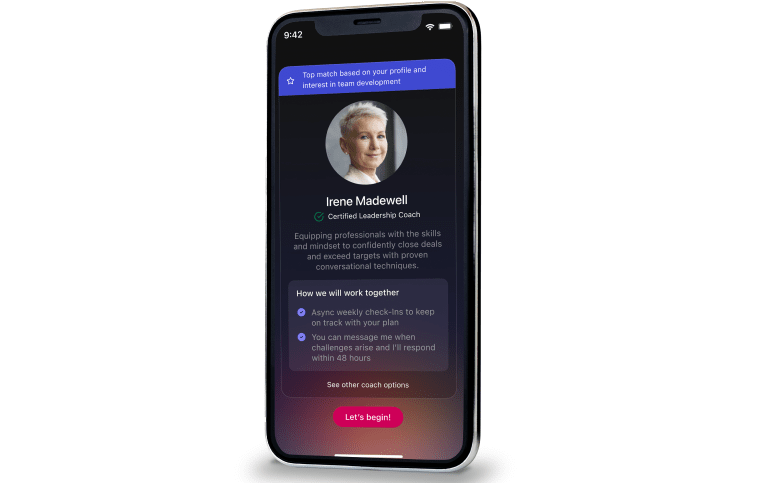-
EN - US
EN - US
-
For Business
For Business
Platform
Platform overviewIntegrationsPowered by AIProducts
BetterUp Lead™BetterUp Manage™BetterUp Ready™BetterUp Grow™Solutions
Sales PerformanceExecutiveGovernmentCustomers
Case studiesROI of BetterUpResources
ResearchContent libraryCourageous leadership development hubCenter for Daring LeadershipBuilt for growth in the age of AI: Explore on-demand sessions, breakthrough research, and powerful takeaways from Uplift 2025
Learn more

-
For Individuals
For Individuals
What is Coaching?
About CoachingFind your CoachTypes of Coaching
Career CoachingCommunications CoachingPersonal CoachingResources
BlogDiscover your perfect match: Take our 5-minute assessment and let us pair you with one of our top Coaches tailored just for you.
Find your coach
-1.png)
- About
-
For Business
Resources
ResearchContent libraryCourageous leadership development hubCenter for Daring LeadershipBuilt for growth in the age of AI: Explore on-demand sessions, breakthrough research, and powerful takeaways from Uplift 2025
Learn more

-
For Individuals
Resources
BlogDiscover your perfect match: Take our 5-minute assessment and let us pair you with one of our top Coaches tailored just for you.
Find your coach
-1.png)
- About




.png)




.png?)
.png?)
